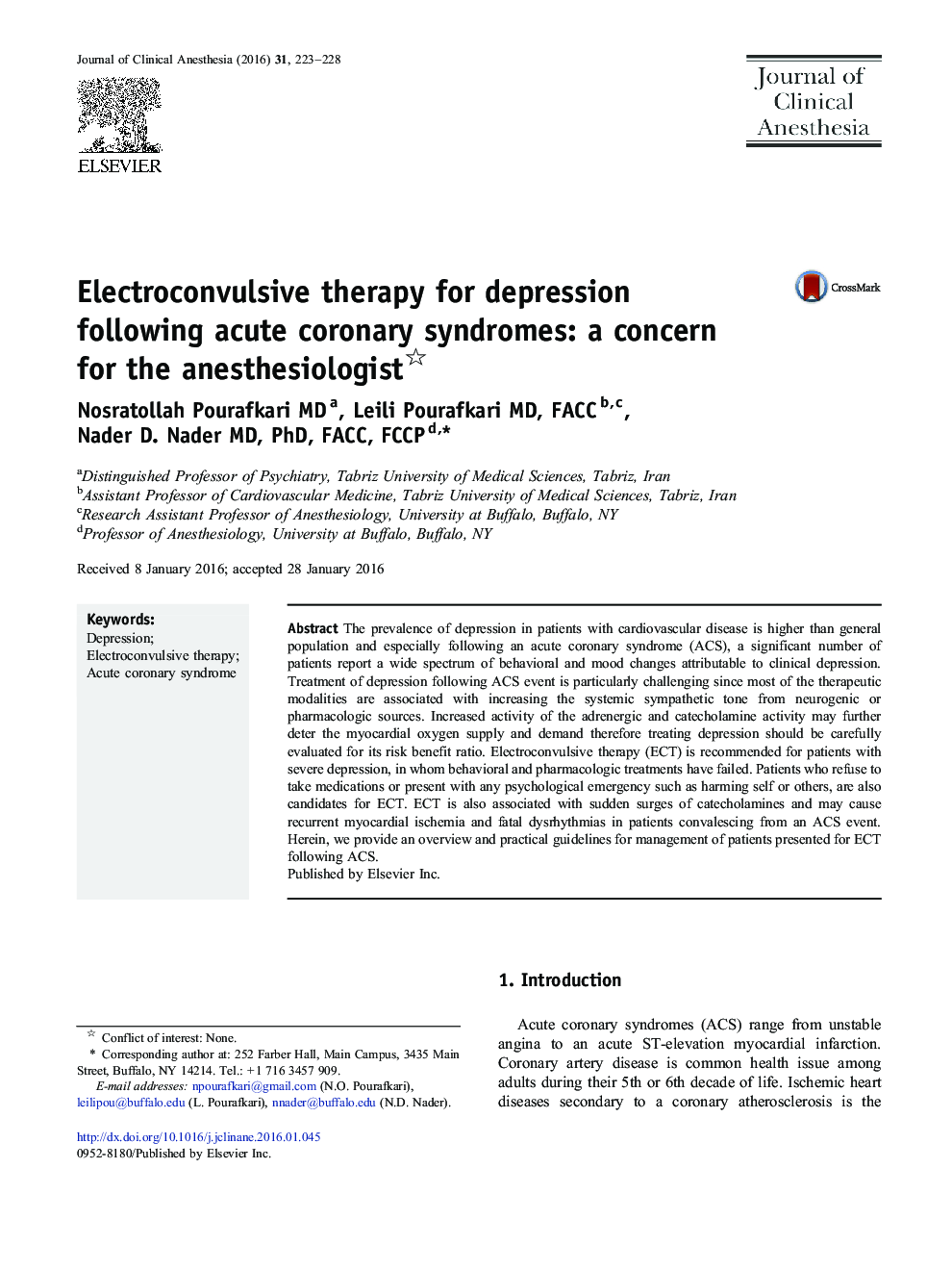| Article ID | Journal | Published Year | Pages | File Type |
|---|---|---|---|---|
| 5884770 | Journal of Clinical Anesthesia | 2016 | 6 Pages |
Abstract
The prevalence of depression in patients with cardiovascular disease is higher than general population and especially following an acute coronary syndrome (ACS), a significant number of patients report a wide spectrum of behavioral and mood changes attributable to clinical depression. Treatment of depression following ACS event is particularly challenging since most of the therapeutic modalities are associated with increasing the systemic sympathetic tone from neurogenic or pharmacologic sources. Increased activity of the adrenergic and catecholamine activity may further deter the myocardial oxygen supply and demand therefore treating depression should be carefully evaluated for its risk benefit ratio. Electroconvulsive therapy (ECT) is recommended for patients with severe depression, in whom behavioral and pharmacologic treatments have failed. Patients who refuse to take medications or present with any psychological emergency such as harming self or others, are also candidates for ECT. ECT is also associated with sudden surges of catecholamines and may cause recurrent myocardial ischemia and fatal dysrhythmias in patients convalescing from an ACS event. Herein, we provide an overview and practical guidelines for management of patients presented for ECT following ACS.
Related Topics
Health Sciences
Medicine and Dentistry
Anesthesiology and Pain Medicine
Authors
Nosratollah MD, Leili MD, FACC, Nader D. MD, PhD, FACC, FCCP,
